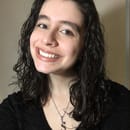By: Ella Bartlett
I am sitting cross-legged on the carpet. There are thirty of us in the circle. I am looking across the circle at my friend, who is finding the words to tell us about their family member’s battle with cancer. I am handed the box of tissues, but I pass it along because I am listening, trying to process my friend’s story as they vocalize it to the entire group. This space, right here– in an EC dorm with the lights dimmed and a silence that gives space for everyone’s story to be heard– is a space I have not come across very often at Barnard and Columbia. This space is created by Camp Kesem volunteers.
Camp Kesem is a camp for children who have been affected by a parent’s cancer, whether this happened long ago or recently, or they are recovered or hoping to recover. During the one week at the end of the summer that we spend with the campers, they live in cabins and do everything from arts and crafts to archery. Counselors go through training during the spring semester, learning code words for bed-wetting incidents and how to deal with sunscreen in the eyes or a scraped knee. We learn how to listen, too; “Empowerment,” which is an event when campers can share with the entire group why they “Kesem,” is an extremely important part of the week, and was what the counselors were emulating above.
I first discovered Camp Kesem through a classmate who, on the first day of class in the fall semester, began talking of her summer experience. Her name is Poppy– this is her camp name, which are sometimes silly, sometimes meaningful words you choose to be called for the duration of camp, like Bobo or Bear or Dandelion. We don’t use our real names, not only to protect our identity with the campers, but also to create an alternate universe at camp, free from the pressures and stress of the outside world.
My camp name is Nanuq, which means polar bear. When I worked at a different camp last summer in Seattle, my campers would constantly ask how to spell it, or pronounce it differently depending on how they felt, drawing out the “aah” (if they were tired of walking) or the “u” (if they wanted a second serving of gorp, with extra chocolate chips). I learned to adjust to being called Nanuq, not Ella; because, truly, at camp, I am not Ella. I do not worry about grades or future careers or stressors within my social circle back home. I worry about whether I can remember the words to the Red Wagon song or running out of the much-demanded shade of gold friendship-bracelet string.
At Camp Kesem, the campers also create camp names. This is an acknowledgement of their freedom to be whomever they want to be at camp, worry about whatever they want to, be friends with whomever or dance in whichever way they like, as well. Considering possible stressors present at home like the loss of a parent or even the imminent loss of a parent, I find it imperative to create a safe space where kids can be free to express themselves without being judged. At Camp Kesem, they do not carry this weight of being known for being a “kid whose parent has cancer.”
Although there are many fun activities, it’s also important to address feelings of sadness if they arise. I think my philosophy as a Camp Kesem counselor is to be accepting of every feeling that a camper might have. Sometimes a camper might share their thoughts about their parent’s passing while we are sitting around the campfire or at an evening meal. Sorrow exists. Addressing those difficult feelings in a comfortable place where you feel like you are being listened to is a whole lot easier than addressing those feelings in a less inviting environment. Creating this environment is what I strive to do as a counselor. And that is why I Kesem.
Folding my legs in a different way on the carpet (and wishing to have the spry legs of a 10 year old camper who can sit W-style with his knees in the same position for, like, 10 hours), I snapped my fingers along with everyone else when my friend finished sharing her story. And then it was my turn. I felt young, momentarily, before I opened my mouth. I felt vulnerable, but I was safe, Baymax on my left and Dolphin on my right. I was being listened to. So then I began to speak.


